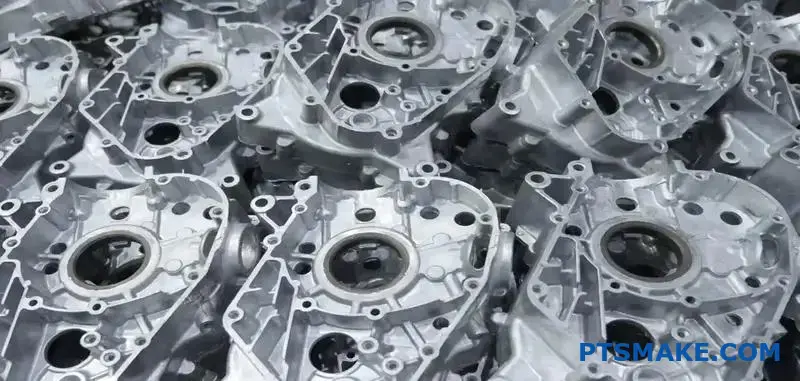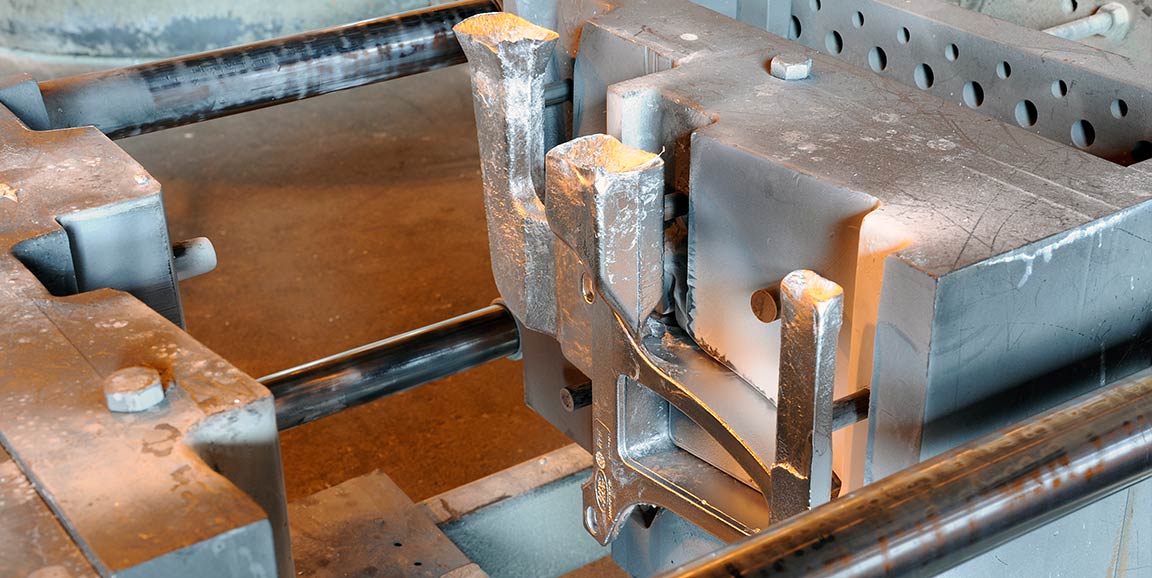Discover the Benefits of Aluminum Casting in Modern Production
Aluminum casting has arised as a critical procedure in contemporary production. Its light-weight yet durable nature presents considerable benefits for numerous sectors. The ability to achieve complex layouts and preserve limited tolerances includes in its charm. Aluminum Foundry. Additionally, the cost-effectiveness and environmental benefits make it a sustainable option. As makers look for cutting-edge solutions, the function of aluminum casting remains to progress. What certain applications and advantages wait for expedition in this dynamic area?
Light-weight Yet Solid: The Benefits of Aluminum
Although numerous materials are made use of in production, aluminum attracts attention as a result of its impressive mix of lightweight residential or commercial properties and phenomenal toughness. This special characteristic makes aluminum a perfect choice for numerous applications, especially in industries such as automotive, aerospace, and building and construction. Its low thickness permits for simpler handling and transport, adding to reduced energy usage during manufacturing and assembly procedures.
Aluminum's strength-to-weight ratio is outstanding, enabling makers to develop resilient parts without adding unnecessary mass. This characteristic is particularly beneficial in industries where weight decrease can lead to enhanced gas efficiency and total performance. In addition, aluminum's resistance to rust improves the longevity of items, even more strengthening its charm in modern manufacturing.
Inevitably, the lightweight yet solid nature of aluminum placements it as a preferred material, promoting technology and effectiveness across multiple sectors. Producers significantly acknowledge that these benefits can lead to substantial developments in style and performance.
Precision and Intricacy in Design
As producers accept the abilities of aluminum casting, they find new methods for precision and complexity in style. This manufacturing procedure permits for the development of intricate shapes and comprehensive features that conventional techniques usually struggle to achieve. The fluidity of molten aluminum enables it to load complex molds, leading to elements with tight tolerances and fine surface finishes.
This precision is especially valuable in sectors such as aerospace and automotive, where precise specs are necessary for performance and safety and security. Aluminum casting additionally suits cutting-edge styles that improve performance without jeopardizing structural stability.

Cost-Effectiveness and Performance
Cost-effectiveness and efficiency are vital factors to consider for makers exploring aluminum casting as a manufacturing technique. Aluminum casting deals substantial expense advantages due to its lower material expenses compared to other steels (aluminum casting). The light-weight nature of aluminum minimizes delivery and handling expenses, and its excellent thermal conductivity permits quicker cooling times throughout the casting procedure, boosting general manufacturing rate
Additionally, aluminum's flexibility makes it possible for makers to create complex shapes and styles, reducing the need for added machining or assembly. This streamlining of manufacturing not only minimizes labor prices but likewise reduces lead times, enabling companies Discover More Here to react quickly to market needs.
The durability and deterioration resistance of aluminum castings contribute to longer item lifespans, lowering substitute costs over time. As a result, suppliers can attain an equilibrium of high-grade outcome and decreased operational expenses, making aluminum casting an increasingly attractive option in modern production.
Ecological Sustainability of Aluminum Casting
Aluminum casting sticks out as an ecologically lasting manufacturing choice, particularly because of its recyclability and lowered eco-friendly footprint. The procedure enables the reliable use aluminum, a product that can be reused indefinitely without shedding its residential or commercial properties. This particular significantly reduces the demand for virgin aluminum, thereby minimizing and saving natural sources energy usage associated with removal and processing.

Applications Throughout Industries: From Automotive to Aerospace
While diverse sectors remain to look for innovative materials for production, aluminum casting has verified to be a flexible option across sectors such as auto and aerospace. In the vehicle industry, aluminum spreadings contribute to light-weight lorry layouts, improving fuel efficiency and performance. Components like engine blocks, transmission real estates, and wheels benefit from aluminum's strength-to-weight ratio.
Similarly, in aerospace, aluminum casting plays a substantial duty in producing complex parts that call for high resilience and low weight. Airplane parts such as braces, touchdown gear, and structural structures utilize aluminum for peak performance and safety.
Furthermore, the versatility of aluminum casting permits it to provide to other markets, consisting of customer electronics, marine, and industrial machinery. This versatility not just fulfills the details needs of different applications yet additionally sustains recurring development in producing processes. Consequently, aluminum casting continues to be a principal in modern manufacturing across many sectors.
Frequently Asked Inquiries
How Does Aluminum Casting Compare to Various Other Steel Casting Processes?
Aluminum casting deals premium strength-to-weight proportions, faster pop over here air conditioning prices, and superb deterioration resistance contrasted to various other steel casting procedures. These benefits make it ideal for various applications, enhancing efficiency and performance in production.
What Are the Regular Lead Times for Aluminum Casting Projects?
Regular lead times for aluminum casting jobs vary from 2 to eight weeks, depending upon variables such as complexity, order size, and manufacturing ability. Efficient planning can assist decrease delays and enhance job timelines.
Can Aluminum Casting Be Used for Intricate Layouts?
Aluminum casting can indeed fit intricate styles. aluminum casting. Its fluidness permits for detailed see this site patterns and shapes, making it suitable for complicated components in various sectors. This convenience enhances style flexibility while keeping architectural integrity and performance
What Post-Processing Options Are Readily Available After Aluminum Casting?
Post-processing choices for aluminum casting consist of machining, polishing, surface treatments, anodizing, and welding. These techniques boost the coating, enhance dimensional accuracy, and rise corrosion resistance, thereby maximizing the final item's performance and aesthetic allure.
Exactly How Do Temperature Modifications Impact Aluminum Casting High Quality?
Temperature modifications significantly influence aluminum casting quality by influencing fluidity, solidification prices, and potential flaws. Fast cooling can result in increased brittleness, while excessive warm may cause warping or insufficient dental filling of molds during casting.
Aluminum casting has actually arised as a critical process in modern-day production. As producers welcome the abilities of aluminum casting, they discover brand-new methods for precision and complexity in layout. Aluminum casting processes normally create less greenhouse gas emissions contrasted to other steel casting methods. While diverse industries continue to look for innovative materials for manufacturing, aluminum casting has shown to be a flexible option throughout fields such as vehicle and aerospace. In the automotive sector, aluminum spreadings add to lightweight lorry styles, boosting fuel effectiveness and performance.